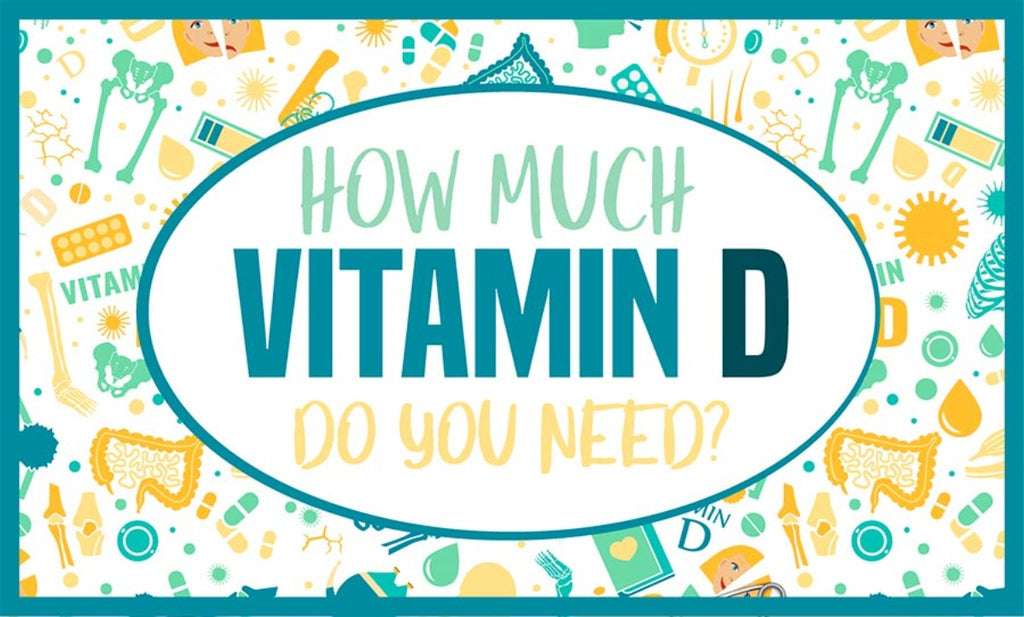How to Get Vitamin D in Winter

Vitamin D is one of the most important micronutrients in the human body. It is essential to bone health and the immune system. The body creates Vitamin D when the skin is directly exposed to sunlight. This makes it easy to maintain Vitamin D levels in the spring and summer. But, in the winter, humans struggle to produce the “sunshine vitamin.”
Low vitamin D levels are linked to numerous health concerns, including:
- Osteoporosis
- Diabetes
- Cancer
- Depression
- Muscle weakness
- Heart Disease
- Death
An estimated 42% of Americans have a Vitamin D deficiency. This rate rises to 82% in Black people and 70% in Hispanics, likely due to systemic problems. However, there are simple steps to effectively increase Vitamin D levels, even in the cold and dark of winter.
Can you get Vitamin D from the Winter Sun?
In most areas of the US, the winter sun is not strong enough for our bodies to produce the amount of vitamin D needed. From November to March, the sun is lower in the sky, hits at an angle, and is less intense than in the summer months. Colder weather also leads to more clothing and less time outdoors, reducing sun exposure. Unfortunately, sitting by a sunny window won’t cut it since UV rays must hit the skin directly for the body to produce vitamin D. So, while sun exposure is the best way to get vitamin D in the summer months, we need a little extra help throughout the winter.
Should I Take Vitamin D in Winter?
Studies show that Vitamin D levels drop in the winter and need to be increased with food and supplements during these months. The Institute of Medicine recommends that most adults consume 600 IU of vitamin D per day. Dosage may depend on age, diet, skin color, and location. However, vitamin D is essential for everyone to stay healthy during the winter when infections, viruses, and illnesses thrive.
Does Vitamin D Help Seasonal Depression?
Vitamin D is essential for mental health and has been shown to support mood and decreased risk of depression. Seasonal depression or Seasonal Affective Disorder (SAD) intensifies in the winter months and improves in the spring when sunlight increases. A 2018 study found that reduced exposure to sunlight and lower amounts of vitamin D were tied to individuals with SAD. This makes sense since vitamin D encourages the production and release of serotonin, a mood-boosting neurotransmitter. In addition to taking vitamin D supplements, UV Lamp Therapy, which mimics natural sunlight and encourages the body to produce vitamin D, is also used to assist in the treatment of seasonal depression.

How Can I Increase my Vitamin D Intake in Winter?
Vitamin D levels can be boosted with supplements, diet, sun exposure, and UV Lamp Therapy. Here are the best ways to maintain proper levels of the “sunshine vitamin” through the winter months:
- Vitamin D supplements
Supplements are more reliable than diet alone for maintaining proper amounts of vitamin D, according to a study by the Harvard T.H. Chan School of Public Health. Few foods contain high levels of vitamin D, although some are fortified. Vitamin D3 is considered superior to vitamin D2 because it’s the natural form produced in the body from sunlight and can raise and maintain vitamin D levels in the bloodstream more effectively. Vitamin D3 Softgels are high-quality supplements to support the immune system, lungs, bones, muscles, heart, hair, skin, and nails.
- Sunshine
Winter sunshine is a great way to increase your vitamin D intake in the winter months. The best time to maximize sun exposure is right around noon when the sun is at its highest point, and UV rays are most intense. Some studies have shown that midday is also the time the body is most efficient at producing vitamin D. The more skin exposed, the better. Going outside on your lunch break for 15-20 minutes will stimulate vitamin D production even in winter.
- Diet
Eating vitamin-rich foods is an easy way to improve nutrition and meet daily requirements. The top foods rich in vitamin D are:
- Salmon
- Mackerel
- Tuna
- Cod liver oil
- Fortified milk
- Egg yolks
- Mushrooms
- Fortified orange juice and cereals
- Calcium
Calcium and vitamin D have a close relationship and rely on each other to keep the body functioning well. Research indicates that low calcium intake intensifies the damage of vitamin D deficiency. Therefore, it’s essential to maintain proper levels of calcium as well as vitamin D. Good sources of calcium include:
- Dairy (such as milk, cheese, and yogurt)
- Leafy green vegetables
- Beans and lentils
- Almonds
- Seeds
- Whey protein
- Soybeans
- Tofu
Calcium supplements such as Calcium+™ and Osteo Complex™ are excellent sources of calcium plus magnesium and essential vitamins to assist vitamin D in supporting optimal bone health.
- UV Lamps
UV lamp therapy is an excellent alternative for helping the body produce vitamin D in the winter. Sometimes called Vitamin D lamps, these special lights emit ultraviolet radiation similar to sunlight, and are believed to positively affect mood and health. Simply sitting in front of a UV lamp for 15-60 minutes a day may support increased vitamin D production, a boost in serotonin, and a reset in circadian rhythm for better sleep.
Shop for Vitamin D3 supplements to keep your body healthy this winter!
Your Hispanic American Health Store
Health Hispanica® is a Hispanic-American health store specializing in supplements from Hispanic-American-owned brands such as Natura-Genics® and Yerba Farma®. We strive to provide quality and innovative supplements at fair prices and educate our clients and community on healthy living.
The statements above have not been evaluated by the Food and Drug Administration (FDA).
This product is not intended to diagnose, treat, cure, or prevent any disease.



Leave a comment